Car crash victims face disruption from their normal lives, an unexpected financial burden and sometimes, may never fully recover. Getting the medical care you need is expensive, even for minor injuries, so recovering maximum compensation to help pay for those damages is important. While there are no guarantees in the legal process, there are steps you can take that might improve your chances of recovering full compensation for your damages. One of those steps is documenting your car crash injuries throughout the legal process. High Stakes Injury Law’s Las Vegas motor vehicle accident lawyers are ready to help. Call today to find out if you may have a case, get answers to your legal questions, and determine how you want to proceed. There is no pressure to hire our firm, even if you find out you have a valid claim.
Documentation Starts at the Accident Scene
Immediately after an accident you should:- Call 9-1-1 to get police and medical assistance to the scene faster - this also ensures you have a police report
- Get medical care at the scene and be sure to get a thorough examination after leaving the scene
Seek Medical Care
Seek emergency care immediately after the accident, even if you received medical assistance at the crash scene. First responders do not have the training or equipment to fully assess all the injuries you may have sustained in the crash. Additionally, this examination will create a medical record, which will help link the diagnosed injuries to your car crash. If you delay getting treated, it may give the insurance company room to argue you could have been injured elsewhere.Organize Your Car Crash Documents
Once your injuries have been stabilized, it is important to focus on your physical recovery. However, you can also help to maximize the value of your injury claim by keeping accurate and consistent records of your injuries and medical costs. Keep all records and documentation related to your accident injuries in one location. Be sure to keep the records organized and be consistent. It will make it easier to find what you need later and will also be more useful to your legal claim. You could also scan documents to save in an online folder to have backup copies.What Documentation Do You Need?
When documenting injuries, there are several records that we recommend you gather, such as the police report, to help support your car crash claim, including:Initial Details About the Crash
As soon as your injuries are stabilized, it is important to write down everything that you remember about the accident, including the moments leading up to the crash, such as:- What you noticed prior to the crash – the other driver swerving, no taillights at night, etc.
- The weather, road conditions, how much available light (dusk, dawn, foggy, etc.) and time of day
- Any absence of road signs, potholes in the road or other unexpected road hazards
- An unexpected hazard that caused you to swerve – a vehicle coming at you or an object or animal in the road
- If another party was involved and if so, what their involvement was in the crash – did they fail to signal, etc.
- Write down any other information related to the crash that you remember – even the smallest details may matter
- Any witnesses you may have spoken to – include their contact details and a statement, if possible
- Whether you noticed a surveillance camera (such as a traffic camera or camera from a nearby business)
Medical Appointment Details
Documenting injuries, such as the medical information related to your car crash, involves more than just keeping a few medical bills. What you save is as important as being consistent and accurate. In all, we recommend documenting:- Contact details of your treating physicians and medical team – anyone who provides care for your car crash injuries
- Date, time, location and reason for each medical appointment (including who the appointment is with)
- Prescriptions – record what you are taking, when you started / finished the medication, and how or if they helped
- Diagnostics and tests ordered – including why they were ordered and what the results determined
- Track the date and mileage – or rideshare costs – for traveling to and from all related medical appointments
- Document details of your medical provider conversations – such as your plan of care and prognosis
- Save / scan copies of your medical bills and invoices of any medications you were prescribed
Documenting Injuries and Progress as You Recover
Documenting your injuries, including their extent and severity at the beginning is important. You may not remember specific details later that could help your claim. Having these details at your fingertips helps to provide accurate and realistic information about your injuries and how they affected you. Be sure to include the initial diagnosis of all your injuries separately and state the severity and expected prognosis. Daily documentation is important, but you are not writing a book. Keep it short and sweet, but also consistent and accurate. For each daily entry, include:- Date and time – if your pain is worse later in the day, add another journal entry to document it
- Describe your symptoms in detail – throbbing headache, burning pain in leg, tingling in fingers, etc.
- Rate how much pain you are having from one to 10, with 10 being the most painful
- Wash, dress or go to the toilet on your own
- Cook, clean or do other household tasks
- Run errands, such as grocery shopping
- Do activities or hobbies you previously enjoyed
- Go to work or perform the same job as before
- Enjoy personal relationships, such as with a spouse or child
